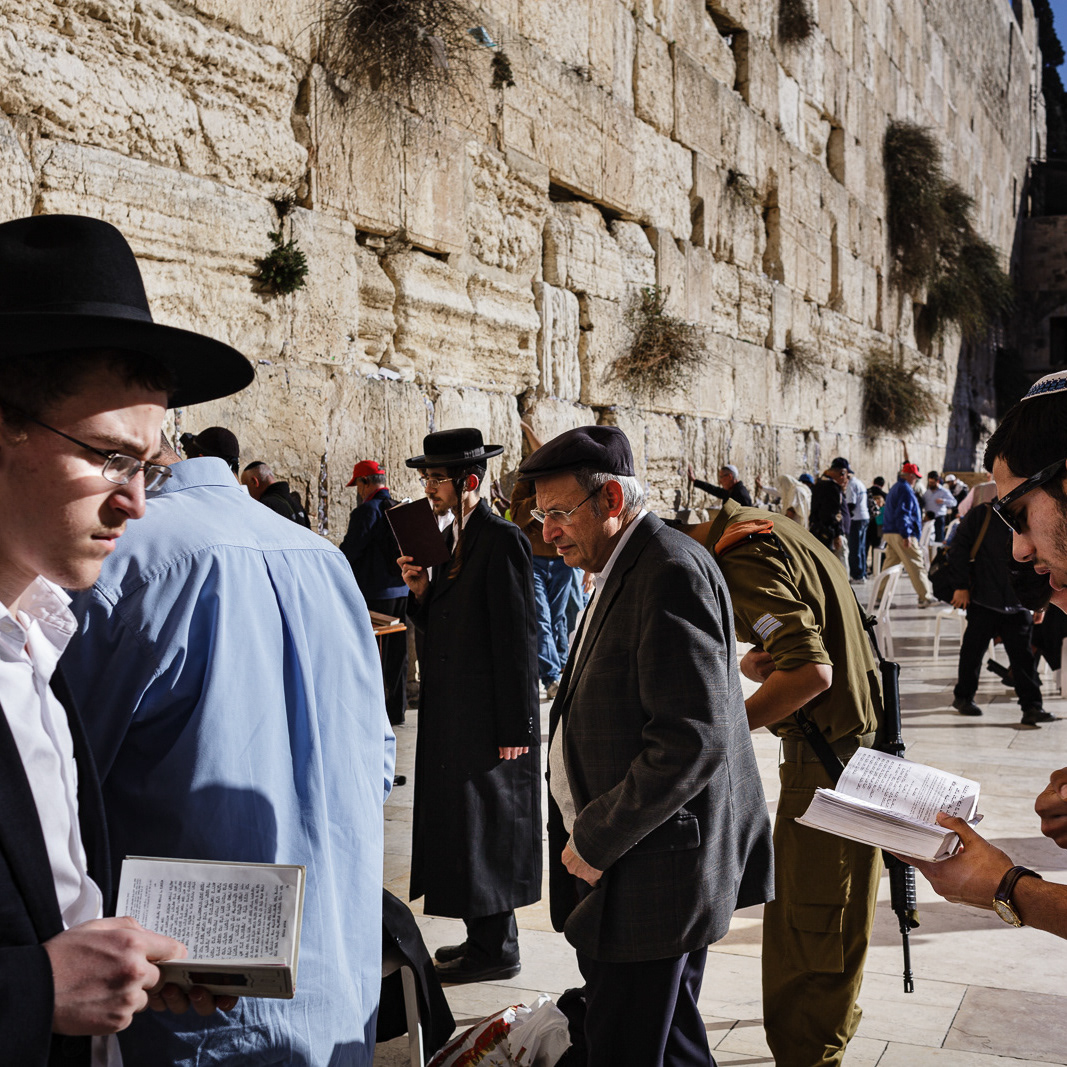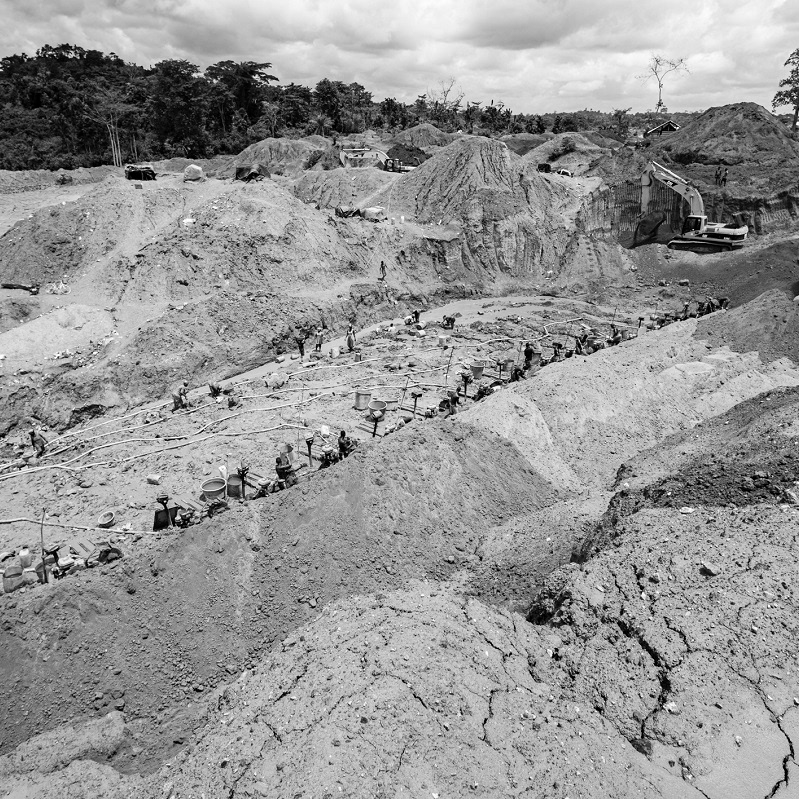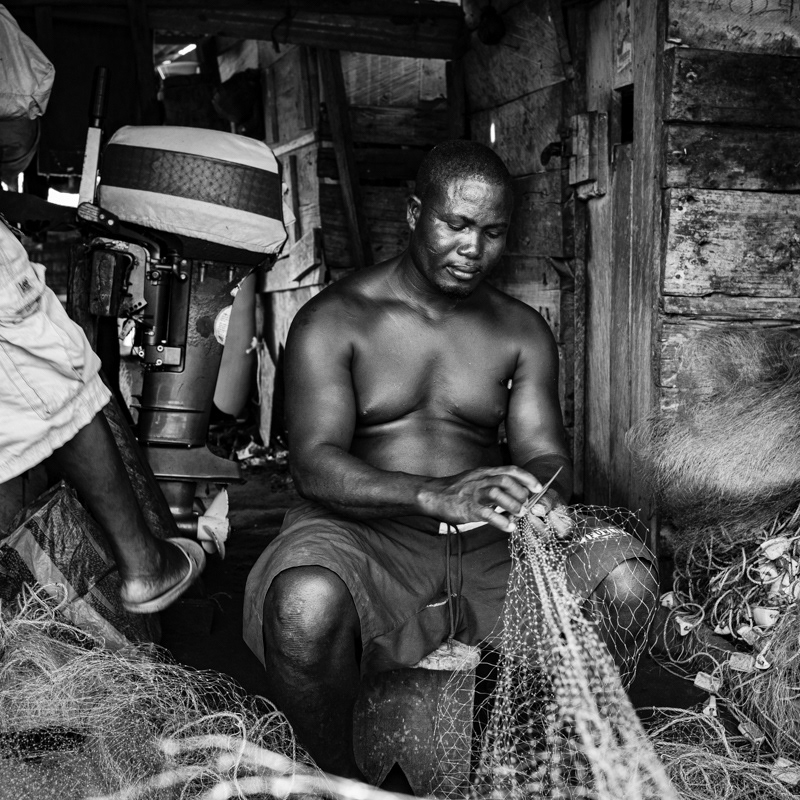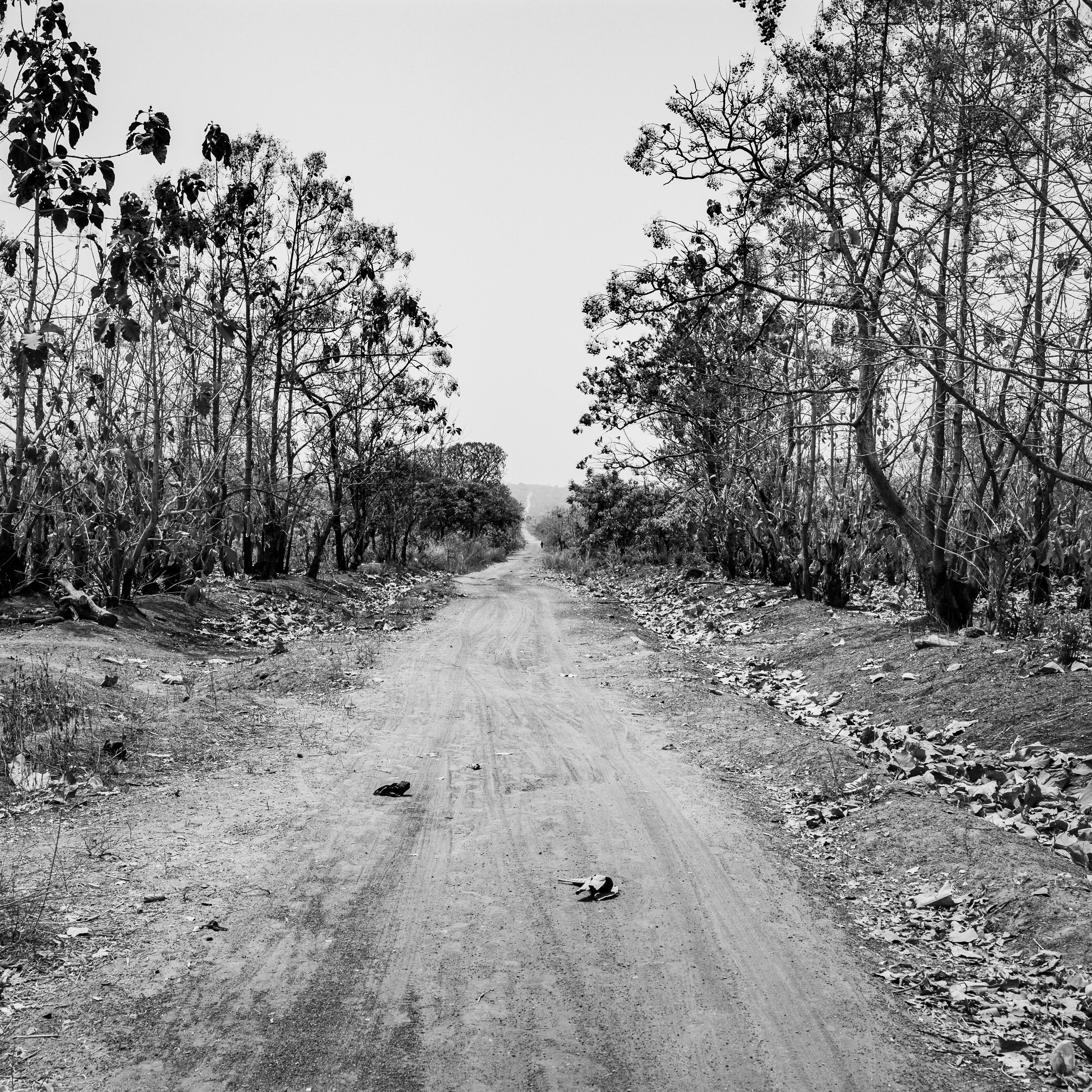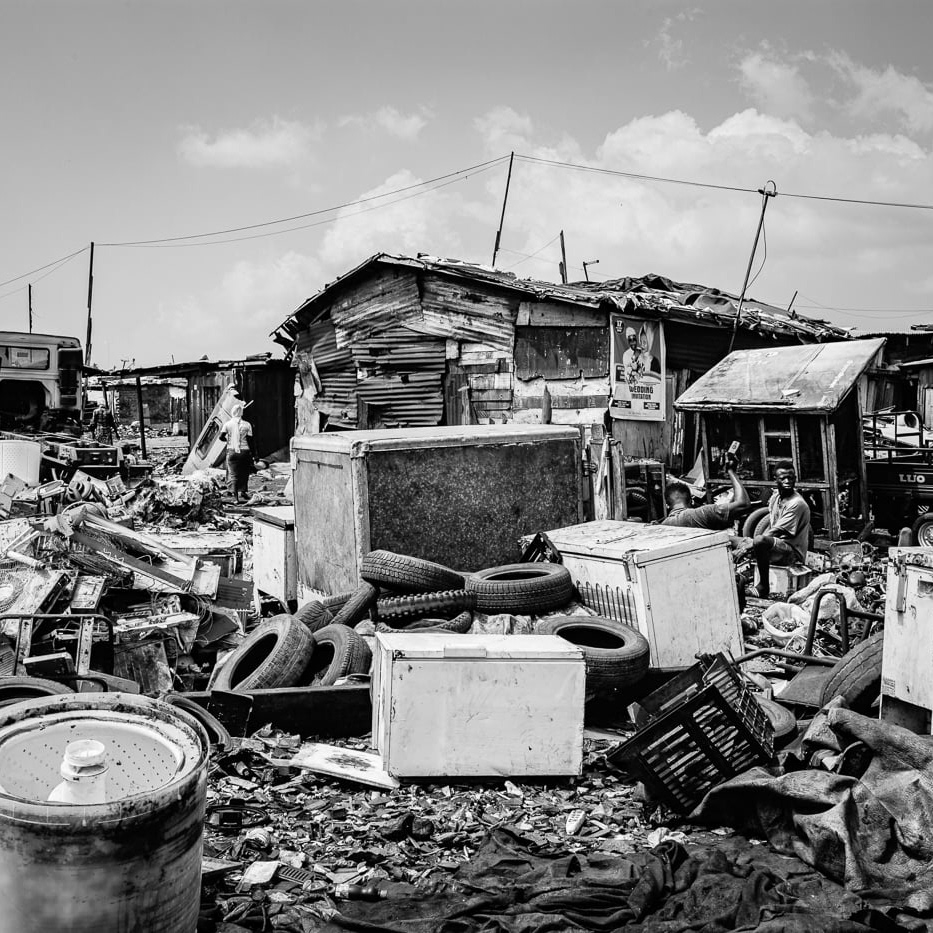Between 2016 and 2017, around 16,000 Nigerian women arrived in Italy from Libya. According to the UN’s International Organization for Migration (IOM), more than 80% of these women were victims of trafficking, destined for a life of forced prostitution on street corners and in brothels across Italy and Europe.
In Palermo alone, there are dozens of “connection houses” run by Nigerian human traffickers and gang members, who control the prostitution and hard drug markets with permission from the Sicilian mafia.
A connection house is more than just a brothel; it also serves as a meeting and entertainment venue, complete with a bar and kitchen, frequented by Nigerians and other West Africans every evening.
Nigerian woman at the entrance to one of the connection houses in Palermo.
Nigerian gang member in a connection house at Ballaro in Palermo.
Graffiti in a Nigerian brothel in the center of the Ballaro district. It’s not only a brothel with rooms for prostitutes and their clients but also a bar, kitchen, hair salon, and disco club. The cheapest sex services cost between 5 and 10 Euros. Young Nigerian girls often incur debts of up to 35,000 Euros to reach Europe from their home country. These trips are organized by gangs and the Mafia; many young girls fall victim to human traffickers who promise them jobs in hair salons, but in reality, they end up working for free on the streets or in brothels for a minimum of two years to pay off their debts to the Mafia. This brothel was shut down by the police in 2018 after a major fight involving local Nigerian and Italian gangs.
Nigerian gang member with one of the prostitute in a connection house in centre of Palermo.
Nigerian prostitute in the brothel in centre of Palermo.
A 26-year-old Nigerian man smokes weed in a new connection house run by his friend, a Nigerian woman, in the center of Palermo. In this connection house, you can buy Nigerian food, beer, or weed, watch Nigerian soap operas, or meet Western African girls. This place is very difficult to find, but all Nigerians in the area know how to get there through word of mouth.
A young Italian girl, addicted to drugs, came to a local brothel in the district with the highest concentration of refugees and migrants in Palermo to sell her family's jewelry to the prostitutes. Ballarò is home to the largest second-hand market in the center of Palermo, where many stolen goods and Chinese products are sold by Italians, migrants, and refugees.
Young Nigerian women at the connection house after Sunday church service.
Young Nigerian gang member smoking marijuana at a connection house.
Homeless Nigerian man leaving a connection house in the center of Palermo. He used to work in a beachside restaurant kitchen, washing dishes for 12-14 hours a day during the summer season, earning 20 euros per day. He has a several-months-old son, and his partner lives in a center for single mothers near Palermo. He doesn't even have enough money for a ticket to visit his son.
Carabinieri officers in front of a connection house in the Ballarò district of Palermo.
A West African man is arrested on the streets of a migrant district in Palermo. High unemployment rates and the lack of benefits for migrants and refugees in Italy create conditions where many Africans are exploited by the Sicilian Mafia as drug dealers. It is widely known, even by the carabinieri and police, that Africans are often the ones dealing hard drugs on the streets. When one is arrested, it’s far cheaper for the Mafia to recruit another African than to use an Italian. According to Mafia rules, they must support the family of an Italian dealer if he is arrested. The photograph captures a candid moment when a young Italian girl approaches a group of African boys, asking for crack.
